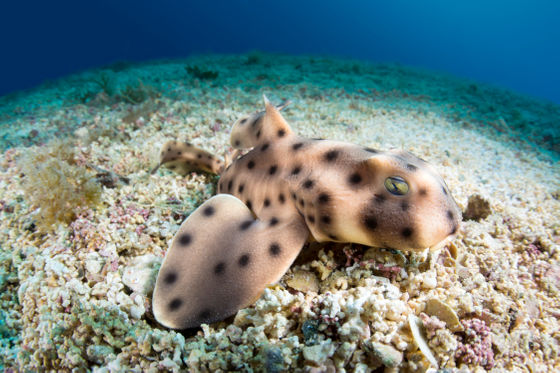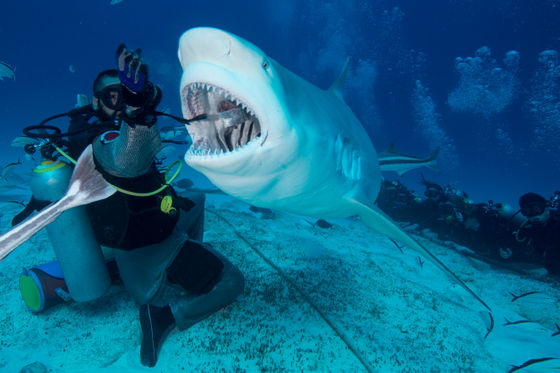Why have sharks outlived dinosaurs and trees?

Sharks, which swam the oceans long before dinosaurs ruled the land, have survived four of the five 'Big 5'
Sharks are older than the dinosaurs. What's the secret to their success? | Live Science
https://www.livescience.com/secret-to-sharks-success-evolution
Sharks, which appeared about 400 million years ago, are older species than dinosaurs, which appeared about 240 million years ago, and trees, which evolved on land about 390 million years ago. One of the reasons sharks have been able to survive for such a long time is thought to be that they can flexibly change their physiological functions according to the environment.
Sharks, which are classified as cartilaginous fish together with stingrays, literally have almost all of their skeletons made of cartilage, and can adapt relatively quickly to make their bodies smaller when the temperature rises.

For example, according to a
According to Professor Christopher Lowe, director of the Shark Research Institute at California State University, Long Beach, some sharks are characterized by very large genomes, some of which are now useless. It seems that it may contain what was used to withstand environmental changes that occurred in the past.
In addition to changes in water temperature, a group of fish called the elasmobranch subclass , which includes sharks and rays, responds to changes in water quality between freshwater and seawater. Especially famous is the bull shark , which is known as a rough and ferocious shark. These abilities are believed to have been useful when changes in global temperature caused the ice to melt and large amounts of fresh water to enter the oceans.

Furthermore, although many sharks are thought to be carnivores, it has been found that they can eat much more than that. For example, bonnethead sharks, which are commonly found in seagrass habitats, eat mainly crabs and octopus, but a 2018 study confirmed that they can digest seagrass when fed.
'This versatility likely helps sharks thrive,' says Gavin Naylor, director of the Florida Shark Research Program.
In this way, sharks have skillfully survived the past mass extinctions with their flexible adaptability, but modern sharks are facing an unprecedented challenge called the 'sixth mass extinction ' that humans are causing. facing.
“Sharks have successfully coped with climate change in the past, but the biggest challenge facing sharks and rays today is overfishing,” Naylor said. There is no,” he pointed out. Sharks, which reign at the top of many ecosystems, are declining due to overfishing, raising a sense of crisis that the impact if the balance of the ecosystem collapses is immeasurable.
Related Posts:







